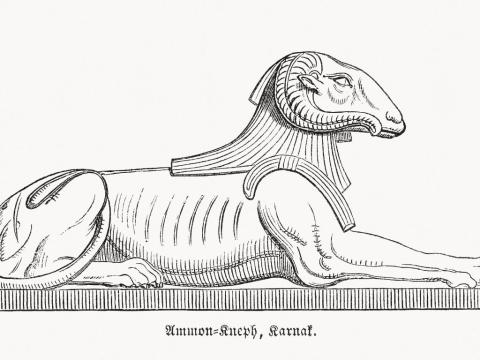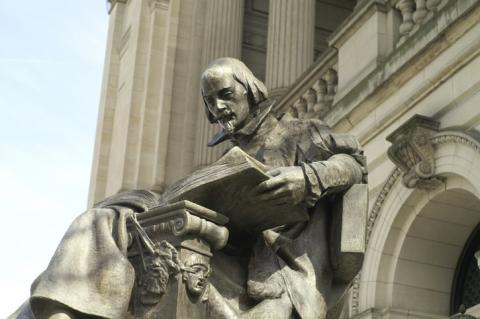Famous Opening Lines Quiz
”It was the best of times, it was the worst of times, it was the age of wisdom, it was the age of foolishness, it was the epoch of belief, it was the epoch of incredulity, it was the season of Light, it was the season of Darkness, it was the spring of hope, it was the winter of despair.”
- This long string of negations is supposed to describe the Enlightenment and the French Revolution.
”It is a truth universally acknowledged that a single man in possession of a good fortune must be in want of a wife.”
- This ironic line kicks off the turbulent relationship between Mr. Darcy and Elizabeth Bennet, and the novel's foray into questioning the norms of marriage.
"Call me Ishmael."
- Many people have remarked on the inventiveness of this first line. Some question what the narrator's name actually is; he does not say "my name is" but rather "call me." Only once does a character other than Ishmael call him that.
"Happy families are all alike; every unhappy family is unhappy in its own way." (trans. Constance Garnett)
- This opening has given rise to the Anna Karenina Principle. In essence, the Anna Karenina Principle implies that for an endeavor to succeed, everything must go right. By contrast, in order to fail, only one thing has to go wrong.
”You don’t know about me without you have read a book by the name of The Adventures of Tom Sawyer, but that ain’t no matter.”
- Huck Finn does appear as a character in The Adventures of Tom Sawyer. Critics generally agree that "that ain’t no matter” as the second book is better.
”If you really want to hear about it, the first thing you’ll probably want to know is where I was born, and what my lousy childhood was like, and how my parents were occupied and all before they had me, and all that David Copperfield kind of crap, but I don’t feel like going into it, if you want to know the truth.”
- So does Holden Caulfield begin his reign as one of the prickliest teen protagonists to grace the page. His sardonic attitude has spoken to generations of high schoolers.
”Mr. and Mrs. Dursley, of number four Privet Drive, were proud to say that they were perfectly normal, thank you very much.”
- This very inconspicuous line begins a story about a boy and a family that are, in fact, not perfectly normal. It is also one of the most translated lines in the world, up there with " In the beginning God created the heaven and the earth."
"It was a bright cold day in April, and the clocks were striking thirteen."
- One has to question whether "The clocks were striking thirteen" is still an effective image in a world that has largely adopted the 24-hour clock.
"I am an invisible man."
- In this case the invisibility being discussed is not literal, as in H. G. Wells. Ralph Ellison instead tells the story of a black man who is entirely overlooked by society, and therefore "invisible."
"You are about to begin reading Italo Calvino's new novel, If on a winter's night a traveler."
- This one was something of a trick question, considering how on the nose it was. But, so begins Calvino's novel about starting a bunch of different novels but failing to finish them. The title refers to a code in the book which forms a pretty good opening.
"Once upon a time and a very good time it was there was a moocow coming down along the road and this moocow that was coming down along the road met a nicens little boy named baby tuckoo."
- Although less renowned than the second novel to feature Stephen Dedalus, A Portrait of the Artist as a Young Man is chockablock with Joycean sentences like this one.
"Somewhere in la Mancha, in a place whose name I do not care to remember, a gentleman lived not long ago, one of those who has a lance and ancient shield on a shelf and keeps a skinny nag and a greyhound for racing." (trans. Edith Grossman)
- Cervantes hits the ground running on his knightly parody. All of the familiar elements are there, but they together conjure a powerful image of a tottering old man rather than a gallant knight.
"I had the story, bit by bit, from various people, and, as generally happens in such cases, each time it was a different story."
- The main action of Ethan Frome is famously pieced together from gossip and the imaginings of the protagonist, rather than from the man himself.
"In my younger and more vulnerable years my father gave me some advice that I've been turning over in my mind ever since."
- “'Whenever you feel like criticizing any one,' he told me, 'just remember that all the people in this world haven't had the advantages that you've had.'" So begins a story of flagrant wealth and youthful indiscretion.
"It was a pleasure to burn."
- A lot of people know that Fahrenheit 451 is supposed to be the combustion point of paper (when not exposed to an external flame). People might not know that this number is a bit controversial, and people aren't sure where exactly this figure comes from.
A not so positive example: "It was a dark and stormy night; the rain fell in torrents, except at occasional intervals, when it was checked by a violent gust of wind which swept up the streets (for it is in London that our scene lies), rattling along the house-tops, and fiercely agitating the scanty flame of the lamps that struggled against the darkness."
- Edward Bulwer-Lytton, despite his many much nicer quotes, is infamous for this plodding opener. So infamous, in fact, that there is an annual contest named after him where contestants submit the worst possible novel openings they can think of.






